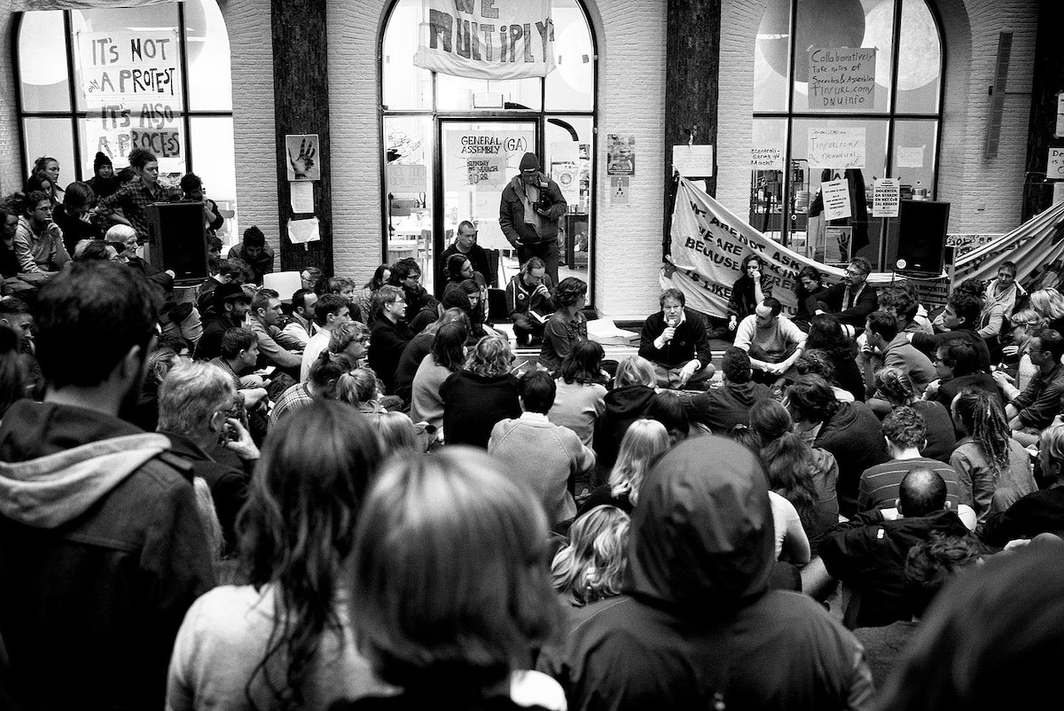Communism may be divided into two chief varieties, which I will call ‘mythic’ and ‘everyday’ communism. They might as easily be referred to as ‘ideal’ and ‘empirical’ or even ‘transcendent’ and ‘immanent’ versions of communism.
Articles
Articles and publications
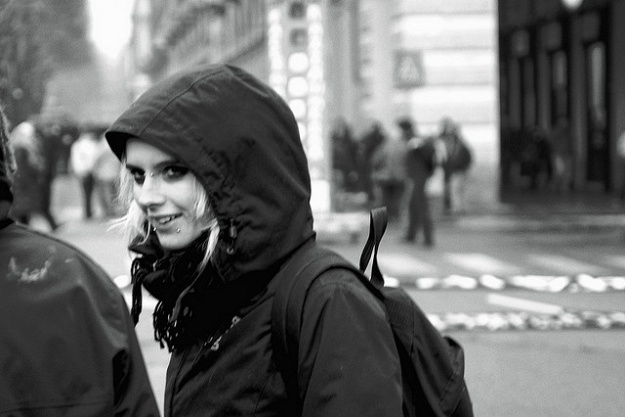
Concerning the Violent Peace-Police
I am writing this on the premise that you are a well-meaning person who wishes Occupy Wall Street to succeed. I am also writing as someone who was deeply involved in the early stages of planning Occupy in New York.

David Graeber studied 5,000 years of debt
Answering today’s OFF-SET questions is David Graeber, who teaches anthropology at Gold- smiths College, University of London. He is the author of “Towards an Anthropological Theory of Value,” “Lost People,” and “Possibilities: Essays on Hierarchy, Rebellion and Desire.”
David Graeber writes for Le Monde on the juxtaposition of the Nuit Debout movement in France and the Panama Paper revelations.
For David Graeber, the social movement La Nuit Debout and the revelations made by the Panama Papers are the latest episode in a global struggle which pitts the oposing movements of the elite and powerful against the popular and revolutionary.
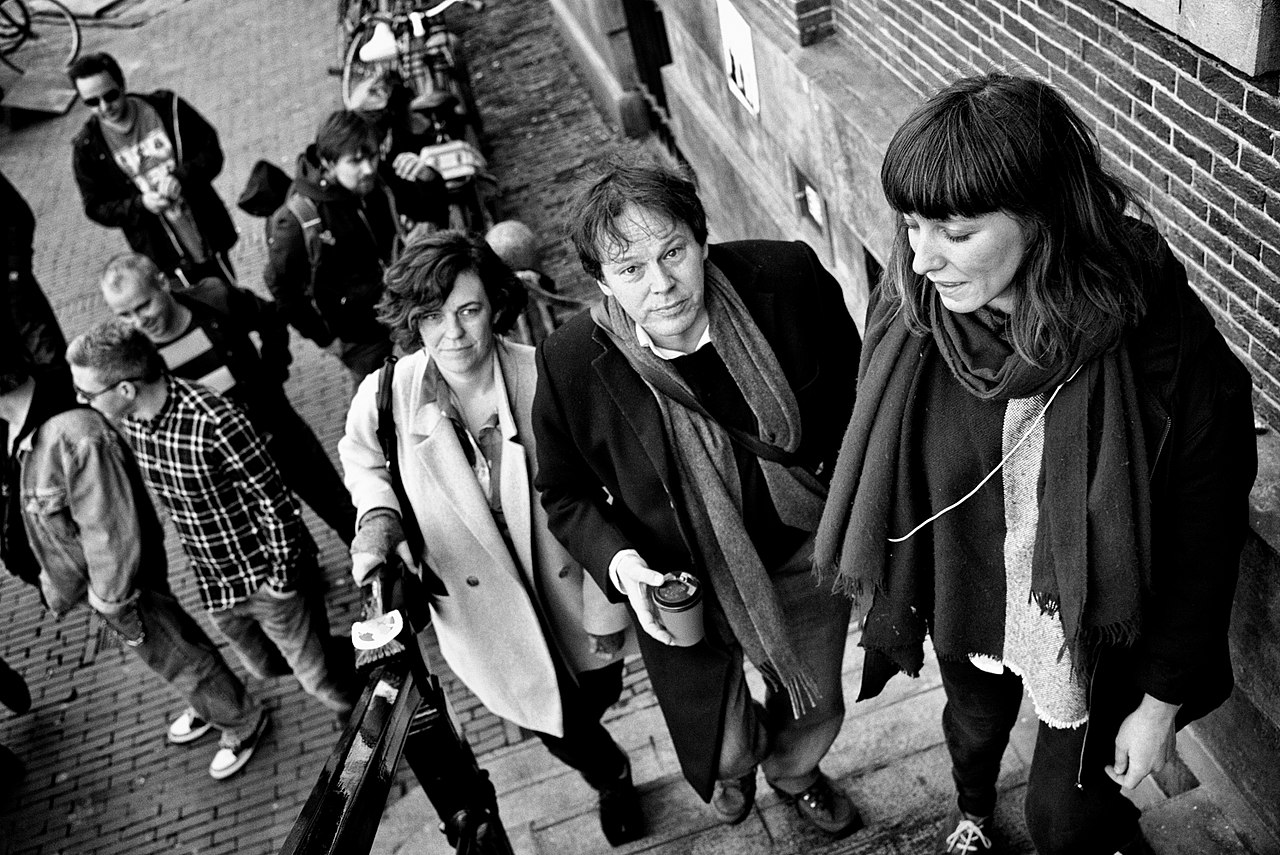
David Graeber: After the Pandemic, We Can’t Go Back to Sleep
In an essay penned shortly before his death, David Graeber argued that post-pandemic, we can’t slip back into a reality where the way our society is organized — to serve every whim of a small handful of rich people while debasing and degrading the vast majority of us — is seen as sensible or reasonable.
David Graeber: Some Remarks on Consensus
There has been a flurry of discussion around process in OWS of late. This can only be a good thing. Atrophy and complacency are the death of movements.

David’s reply to Brad DeLong
In late 2011, around the time of Occupy Wall Street, he for some reason known only to himself, decided to go gunning for me despite my never having met him or interacted with him in my life. He started with outright personal slander that had nothing to do with my work (or anything else I could figure out) until my publishers encouraged me to point out that false personal aspersions were actionable
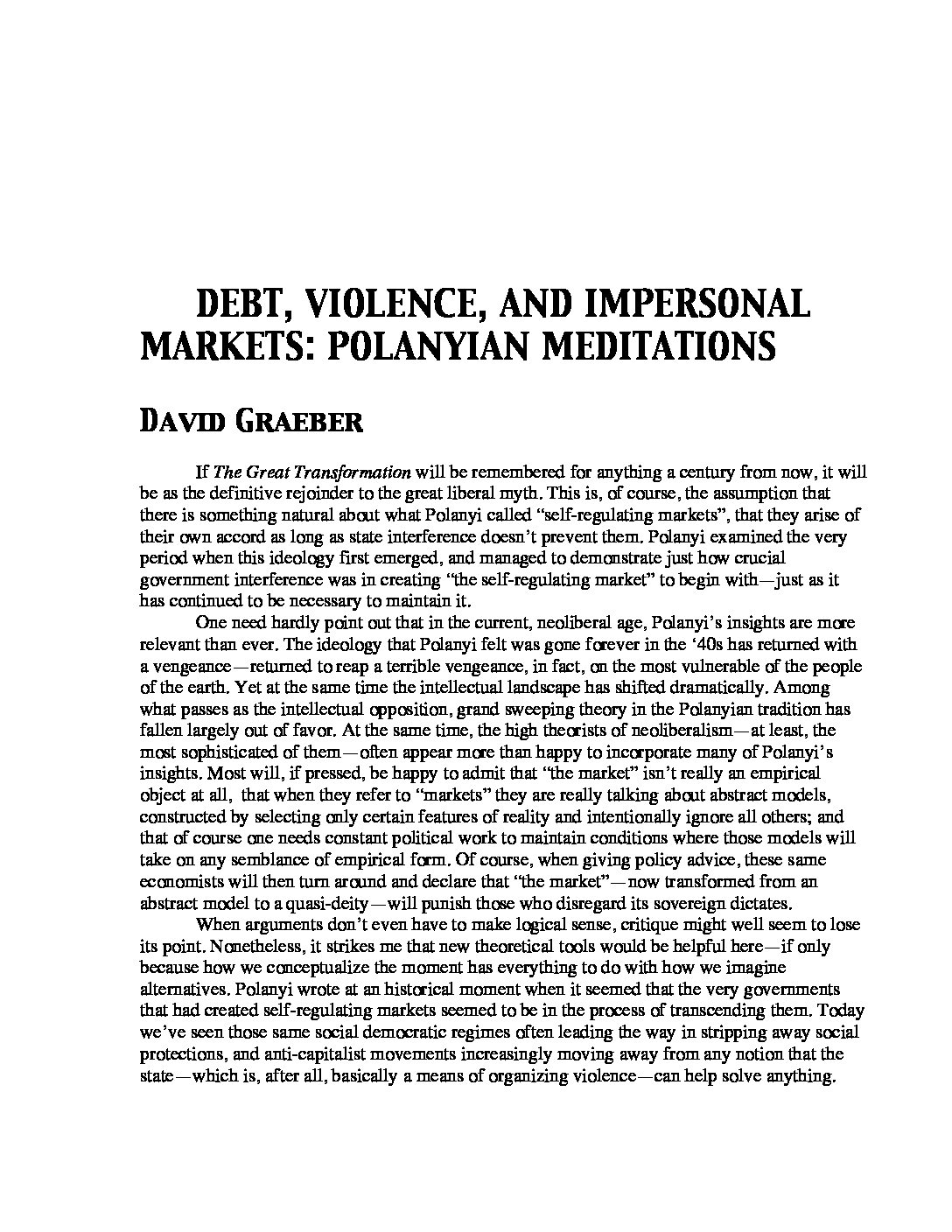
DEBT, VIOLENCE, AND IMPERSONA MARKETS: POLANYIAN MEDITATIONS
If The Great Transformation will be remembered for anything a century from now, it will be as the definitive rejoinder to the great liberal myth. This is, of course, the assumption that there is something natural about what Polanyi called “self-regulating markets”, that they arise of their own accord as long as state interference doesn’t prevent them.
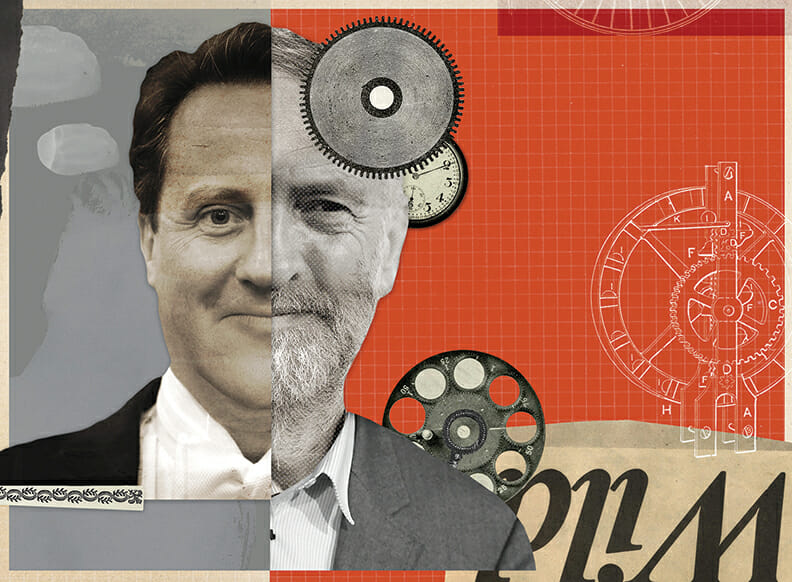
Despair Fatigue
How hopelessness grew boring
Is it possible to become bored with hopelessness?
There is reason to believe something like that is beginning to happen in Great Britain. Call it despair fatigue.
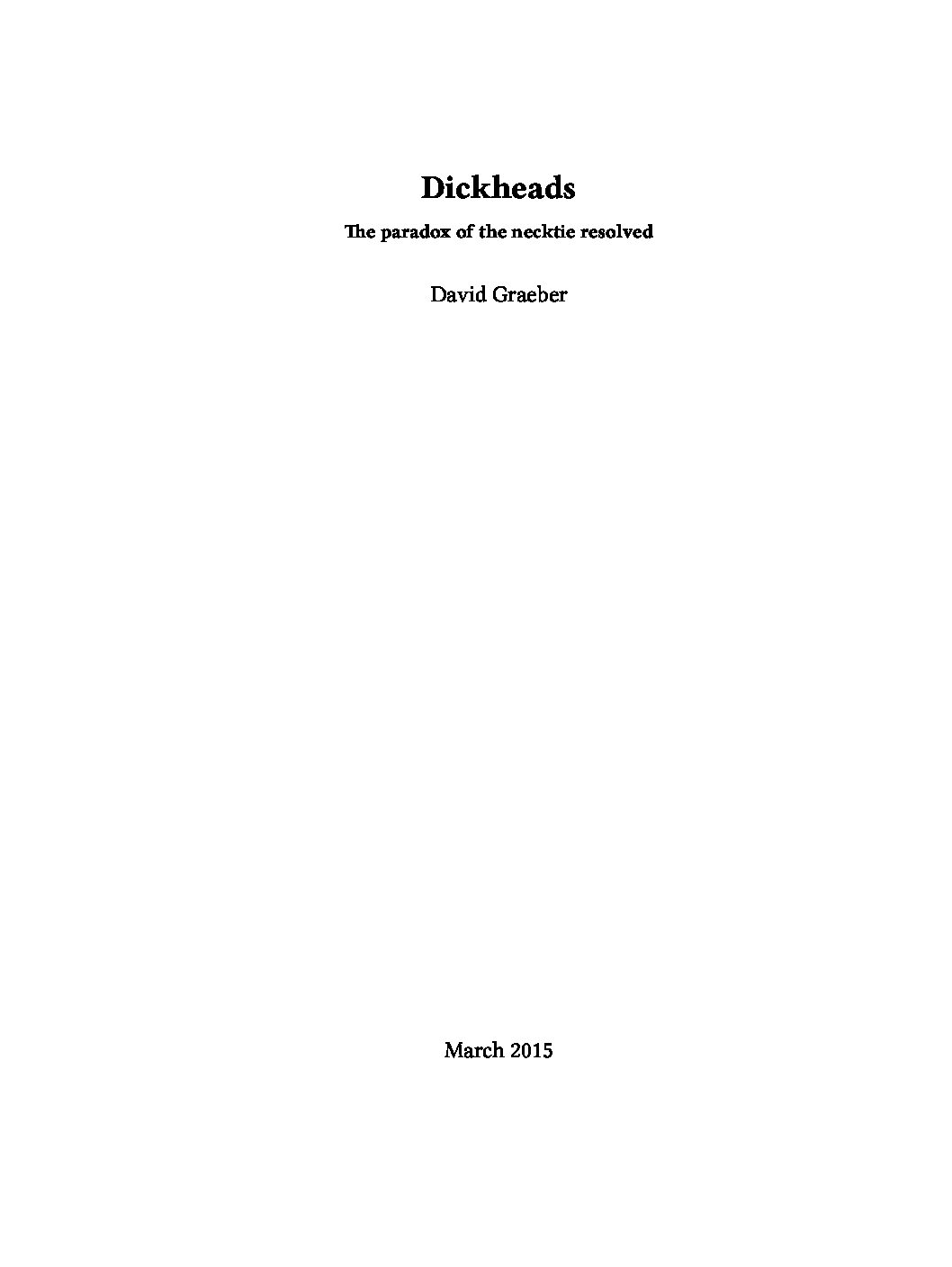
Dickheads: The paradox of the necktie resolved
Some people (me, for instance) put a great deal of energy into organizing their lives so that they’ll never have to wear a tie. I’ve often wondered why this should be. Why should ties have such symbolic power?

Farewell to the ‘childhood of man’: ritual, seasonality, and the origins of inequality
Some people (me, for instance) put a great deal of energy into organizing their lives so that they’ll never have to wear a tie. I’ve often wondered why this should be. Why should ties have such symbolic power? It’s not as if other parts of a formal suit—white shirts, tailored slacks, vests, or blazers—inspire the same sort of indignation.
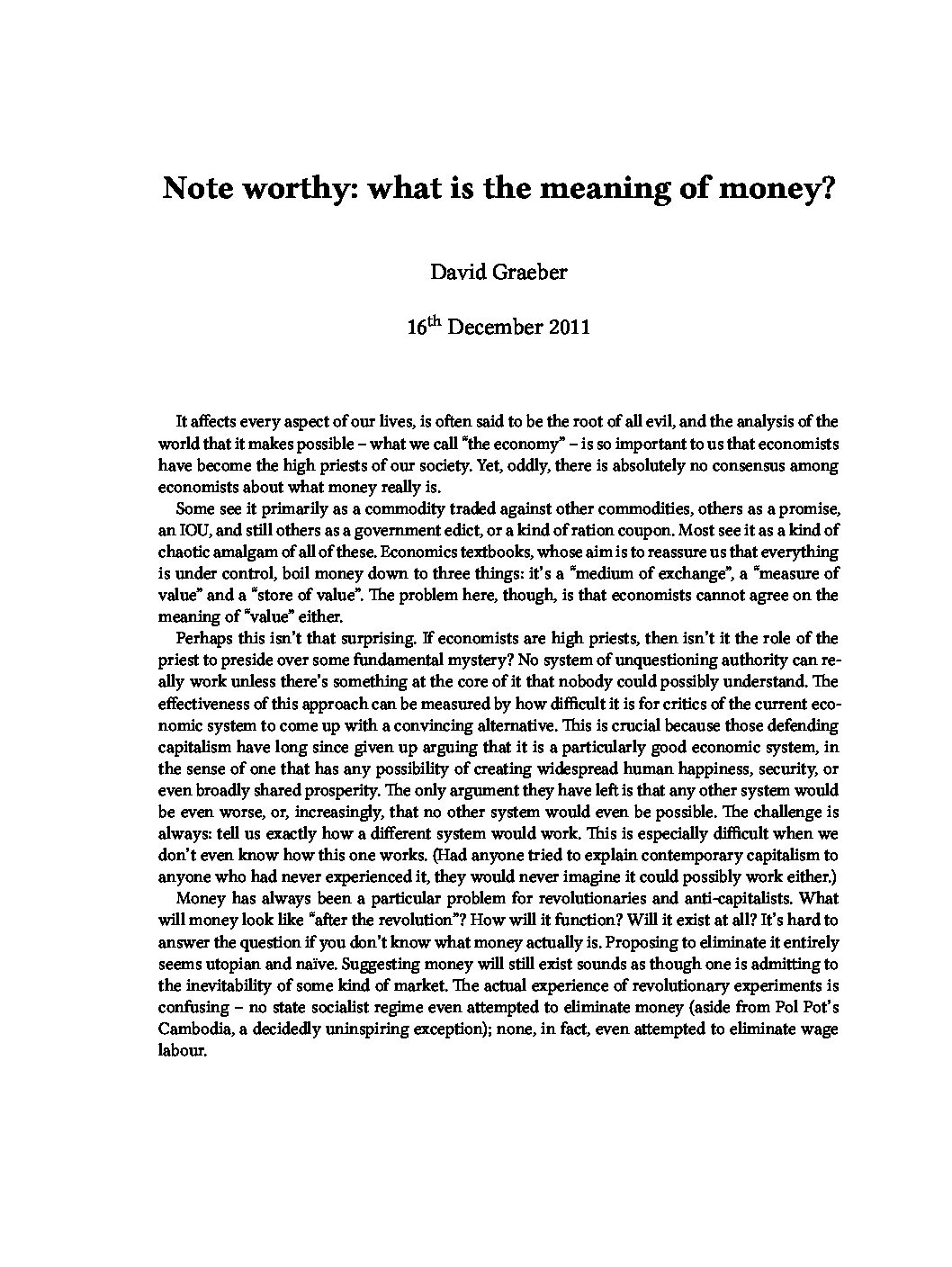
Foreword The return of ethnographic theory
It affects every aspect of our lives, is often said to be the root of all evil, and the analysis of the world that it makes possible – what we call “the economy” – is so important to us that economists have become the high priests of our society. Yet, oddly, there is absolutely no consensus among economists about what money really is.




